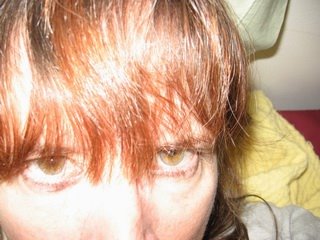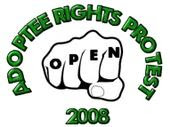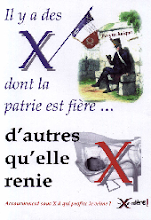 Go to link for extensive timeline and pictures.SEATTLE TIMES
Go to link for extensive timeline and pictures.SEATTLE TIMES
February 3, 2008Tribes confront painful legacy of Indian boarding schools
By Marsha King
Genevieve Williams lies in failing health in her daughter's small house on the Tulalip Reservation, haunted by powerful memories.
She sees herself as a little girl. Marching everywhere in a line. Scrubbing floors on her hands and knees. Being forced to stand silent for hours in a dark hall. Watching children get strapped for speaking their native language.
"I got to know that strap," she said. "Everybody knew what that strap was for, hanging inside the door."
It was especially bad for girls who wet the bed. Dresses pulled up and underwear pulled down, they were beaten. "We all had to line up and watch."
At age 85, Williams bears witness to a dark and unfinished chapter in American history: the Indian boarding school era.
Increasingly, the damage from that early abuse, loneliness and lack of love is being seen as a major factor in ills that plague tribes today, passed from one generation to the next and manifesting in high rates of poverty, substance abuse, domestic violence, depression and suicide.
And as awareness of the enduring harm grows, tribes and others in Washington and nationwide are reaching out in new and varied ways to elders, their children and their children's children in hopes of repairing the damage.
"This is a huge experiment — healing of this magnitude and consciousness," said Harvard doctoral graduate Sousan Abadian, an expert on Indian boarding schools and trauma to entire cultural groups.
The boarding school era began in the late 1800s and continued at its most oppressive through the 1920s, when the federal government forcibly placed tribal children in the harsh, militarylike institutions in an effort to assimilate them into the dominant culture.
All things Indian — dress, language and beliefs — were forbidden. Affection was rare, punishment often severe. Some students were raped, many tried to run away and unknown numbers died.
The schools, which slowly started to reform in the 1930s, were not just an American phenomenon. Australia and Canada operated similar institutions, also intended to indoctrinate and "civilize" their native peoples.
In Canada, the federal government recently reached a record $5 billion settlement under which some 80,000 former students are eligible for an average of $28,000 — more if they were sexually or physically abused.
"Essentially, this is what happens any time one people assert they know what is good for another," said Kevin Gover, director of the National Museum of the American Indian at the Smithsonian Institution. "It is tragic and inevitable."
In 2000, when he was the assistant secretary of the Bureau of Indian Affairs, Gover apologized to Native Americans for historic abuses by the BIA, including brutalizing their children "emotionally, psychologically, physically and spiritually" in boarding schools.
In the U.S., the focus has been less on legal actions against the federal government and more on healing.
Efforts range from the national Boarding School Healing Project to a $3 million health study by the University of Washington and the Tulalip Tribes to widespread efforts to revive tribal culture.
Lost parenting skills are believed to be a key factor in why the damage endures, so at least one group — the Tulalip Tribes — is weaving lessons about the boarding school era into child-rearing programs for parents and into decision-making classes for teens.
"It's a miracle that native peoples have survived at all," said Abadian, the cultural-trauma expert. "It reflects their unbelievable resilience."
Strong emotionsIn the U.S., the boarding-school era evokes dramatically different views among Native Americans.
Some caution against asking elders to recall their boarding school years as it may trigger flashbacks, depression or even suicidal thoughts.
Others believe the era must be talked about for native people to grow strong.
And some former students insist the best years of their lives were spent in boarding schools, where they got three meals a day and met lifelong friends.
According to Abadian, those who did better often started at a later age, got to take part in some traditional activities and weren't entirely separated from their family and community.
And others — rejecting the victim label — turn the experience into a positive, saying "it was good discipline," or "I've been able to learn from it."
The father of state Rep. John McCoy, D-Tulalip, was fluent in the tribe's language but refused to teach it, saying "they beat it out of me" at boarding school. In 2005, McCoy helped win passage of a bill that encourages school districts to teach native history and culture and to consult tribes in developing that curriculum.
For some, their silence may be due to shame.
"There's a lot of incest and child abuse going on in our Native American communities" — behavior that originated in large part at boarding schools, said Phil Lane Jr., CEO of United Indians of All Tribes in Seattle.
Lane, who was born in a boarding school in the Midwest, helped to mobilize Canada's former students. "It's a very difficult issue ... just to get people to talk about it," he said. "It's painful."
Some families are working privately to stop the cycle of harmful behavior.
In Spokane, Martina Whelshula, a psychotherapist and member of the Colville Nation, is leading three generations of her family in healing sessions.
Two of her grandparents and her mother grew up in boarding schools. Her mother was cold and demanding and hit her, and Whelshula was doing the same with her own older daughters.
But it wasn't until she was studying about Indian boarding schools for a doctoral degree that she had an epiphany.
"All the pieces fell together," said Whelshula, who is president of Spokane Tribal College. "I saw all the devastation around me, all the woundedness. I realized it was me."
By then, her own daughters were repeating the mistakes with their children. Whelshula called a meeting so every generation could hear grandma Alice Stewart's story about growing up in boarding schools. That way the family could understand its parenting style in the context of history. They've kept talking ever since.
It's been a learning experience as well for the 70-year-old Stewart.
"I thought I was a good parent," Stewart said. "I didn't know I was one of the worst ones."
Boarding-school trendThe Indian boarding-school movement in the U.S. began in earnest in the late 1800s.
Before that, Native-American children were educated primarily in church-run mission schools and some tribal schools. But after tribes were moved to reservations, their treaties typically called for government-provided education.
The first government-run, off-reservation boarding school was the Carlisle Indian School in Pennsylvania, founded in 1879 by Capt. Richard H. Pratt.
He and other reformers believed at the time that if Indians were given a proper education and religious training they could be civilized out of their "savagery" and assimilated into society.
Pratt's oft-quoted philosophy: "Kill the Indian and save the man."
By the early 1930s, an estimated two-thirds of Native Americans had attended boarding school at some point in their life.
Some schools were off-reservation, others on. Other students attended day schools. The federal government ran them or subsidized the mission schools.
Among the best-known in the Puget Sound area were Cushman Indian School in Tacoma — which later became an Indian tuberculosis hospital — Fort Spokane Indian School and the Tulalip Indian School on the reservation.
Boarding schools slowly started to improve in the mid-1930s, becoming less coercive over the next decades and more encouraging of tribal culture, though corporal punishment continued until it also was stopped in mainstream education.
In the 1960s, new federal laws gave Native Americans more rights, as well as control of their children's education. Many schools closed, and the remaining ones increasingly embraced what had been forbidden.
But it was not that way for the earlier generations.
Then, a typical day consisted of lessons in the morning and manual labor in the afternoons. Punishment ranged from a lost privilege to being locked in a closet or beaten.
Parents who openly resisted giving up their children lost food rations or were jailed. Others hid their children or denied being Indian, though some willingly sent their children to the schools to get an education or escape poverty.
Contact with families often was limited to summertime. And even then, some students were sent off to local people's homes to learn how to be civilized — that is, to be maids or farmhands.
Extreme loneliness was common."I used to stand at the window and cry," said Fran James, 83, a Lummi tribal member. "The night watchman would come along and say 'Little girl, you'd better go to bed.' "
Along with two sisters, James was sent to the Tulalip school in 1930 when she was about 6, then to Cushman Indian Hospital, then to the Lummi day school in 1935 and finally to Chemawa Indian School in Salem.
She studied and worked in the garden and laundry, learning to iron a shirt in two minutes. As an adult, she managed to reconnect with her culture, becoming a renowned basket maker and wool weaver.
Not long ago, her son Bill wrote to the Federal Archives for her birth certificate and a package with several documents arrived. Inside was an unopened letter from her father written in 1939.
"They will let you know when you can come home," the letter read in part. Why did it never reach her at Chemawa? The question brings tears, but no answers.
"My mom lost the spirit of the people," said her son. "Even though today she's very strong in her culture ... she lost her language."
Between two worldsWith little communication from home and heavy indoctrination at boarding school, many children felt alienated, abandoned and not sure whether to identify with the white or Indian world.
While many families welcomed their children home, others did not.
Former chairman of the Tulalip Tribes, Stan Jones, now 81, was sent to Cushman Indian Hospital in 1937 at age 11, along with three older siblings. He was there for three years.
"Actually, I forgot about my home," Jones said. "I wasn't sure where I belonged."
When Jones finally did return to the reservation, the driver tried to drop him off, but Jones thought his immediate family didn't want him back. "It's just kind of what the government taught you there," he said.
He finally settled at an aunt's house, coming to realize years later that he had been mistaken about his family's motives. "I should've just went to my dad's."
Later generations recall that same lost feeling.
"It kind of shapes your life," said his younger brother, Dale Jones, 65.
In the 1950s, social workers took him and four other brothers from their family and sent them by bus to Chemawa. To this day, he recalls paddlings and the humiliation of standing in line after showers to have his genitals visually inspected by a matron.
"You've carried it so long, I guess it becomes like a hidden deal inside of you, " said Jones, a recovering alcoholic.
He attributes some of his difficulties with alcohol to the boarding-school experience. "We try to bury the feelings we carry."
To Gover, of the Smithsonian, the schools' painful legacy should come as no surprise.
"Imagine being a 10-year-old at boarding school. You're told everything about you is wrong," he said. "I don't think we can even perceive the degree of shame involved."
Trying to healHealing efforts are wide-ranging.
The national Boarding School Healing Project was started in South Dakota in 2002 by Indians from various states.
Among other efforts, it is documenting abuses so communities can seek redress from the government and churches, in the form of laws and money to improve Indian education.
The University of Washington is conducting a five-year, federally funded study with the Tulalip Tribes to determine the factors — from cultural habits to past trauma such as from the boarding schools — that are related to heart disease in Native Americans. The aim is to develop prevention programs based on healthier choices.
In downtown Seattle, the Seattle Indian Health Board has started a program for urban elders.
At twice-weekly gatherings, they learn lost skills such as bead work. Some went to boarding schools, and occasionally they talk about having been beaten for "talking Indian."
It's a time "to honor good feelings or put to rest the bad so you can move on," said Chris Chastain, elder specialist.
Just west of Marysville, parenting classes are being taught on the Tulalip Reservation.
As part of a six-week course, a small group of adults met for a recent class, which began with an account of how the boarding schools of old might be contributing to their struggles today.
Instructor June LaMarr, a tribal mental-health counselor, told them that natives originally believed children "are specially beloved" and should not be hit or disrespected lest they return to the spirit world. But that gentle approach was disrupted by the boarding schools.
At one class, she projected onto a screen the words of a sweat-lodge doctor who'd gone to boarding school: "... When you get older, the habit is there, being mean and ornery ... The parent doesn't stop to think about what he's doing to his kid. He is taking his boarding-school attitude out on him."
"I never really thought about it 'til today," said Angel Chance, a class participant whose mother and grandmother rarely brought up their time at boarding schools.
A proud survivorGenevieve Williams always has been candid about her years at the Tulalip school, Cushman Indian Hospital and St. Georges Mission School near Tacoma.
By the time she left the schools for good at age 14, she didn't recognize her own mother.
The two never did bond.
Later, she didn't know how to nurture her own children. Her husband had been physically abused in a Canadian residential school and instilled in their children his deep suspicion of white people.
"That's how we grew up," said their daughter, Leslie Lopez.
After many prayers, Lopez decided to judge people by their actions instead of their race and to teach her children to do the same.
"It's taken a long time. I try hard," she said. "It's getting easier."
Williams now lives on the reservation with Lopez, with whom she's grown close. She encourages the grandkids to learn the Lushootseed language, and she sometimes watches language classes on the tribe's closed-circuit TV network. But the only word she knows, she says, sounds like "paw-sted" — meaning white person.
To this day, questions haunt her — such as why she was sent to a TB hospital when no doctor ever found evidence that she had the disease. Sometimes she looks back and cries. "I know I missed out on a lot ... "
But like others of her generation, she doesn't want to be cast as a victim. At 85, she's proud to be an elder. "I am Native American," she says. "I survived."
Marsha King: or mking@seattletimes.com
Link to article

 Also links to poll and high-traffic forum on adoptee rights.
Also links to poll and high-traffic forum on adoptee rights.























